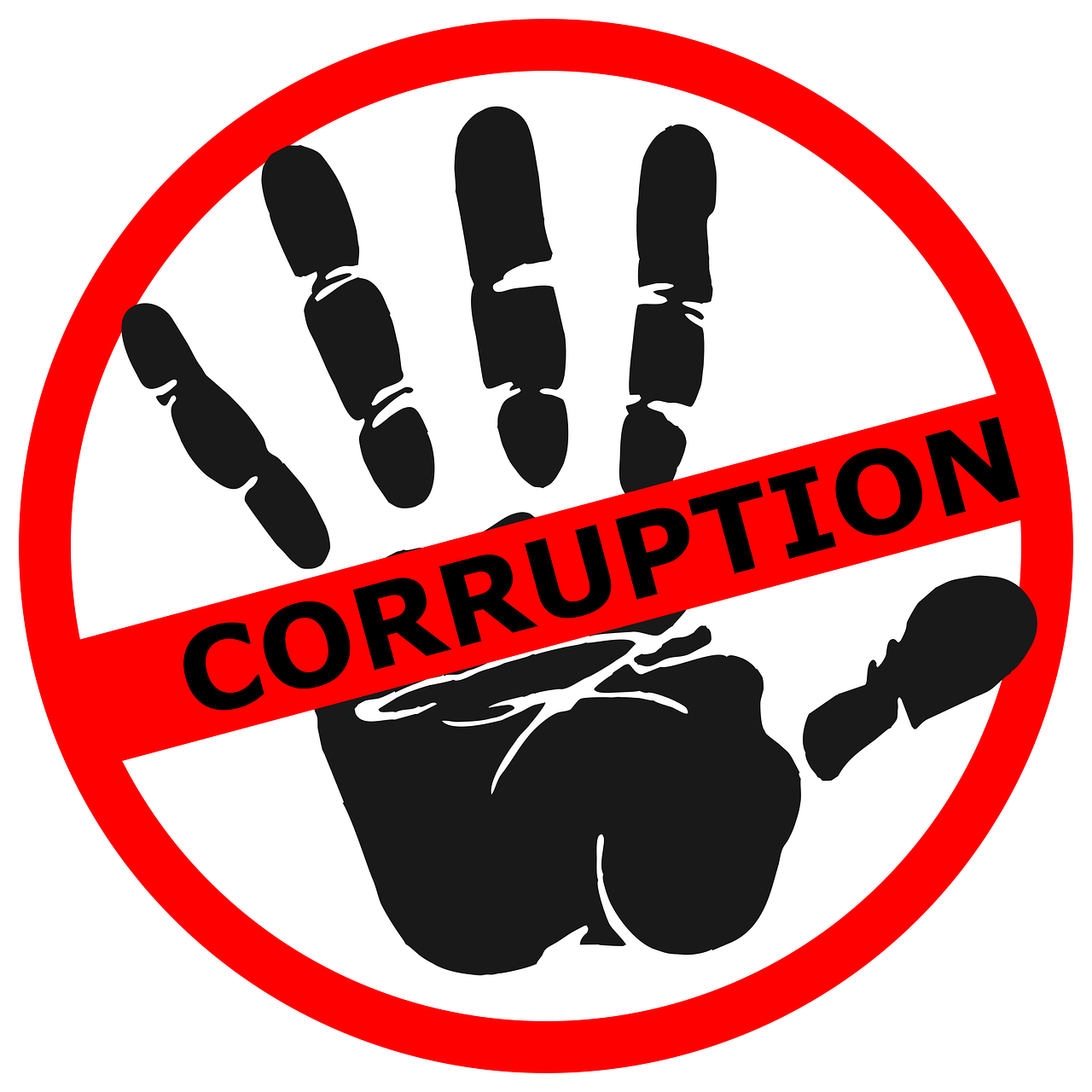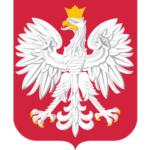Anti-corruption research
One of the main areas of the implementation studies conducted at the Institute of Political Science involves anti-corruption research. The activity of experts from the IPS in the field of counteracting various forms of corruption is important both in terms of activity aimed at improving the functioning of public institutions, but also – as a consequence – in terms of increasing civic institutional trust, which has been low for many years.
Research and reflections of IPS employees have been presented in several scientific publications: Przeciwdziałanie korupcji w samorządzie terytorialnym. Raport z badań w województwie śląskim [Counteracting corruption in local government. Report on research in the Silesian Province] (scientific editors: Agnieszka Turska-Kawa, Marek Czaja, 2015), Korupcja w administracji [Corruption in administration] (scientific editors: Agnieszka Turska-Kawa, Małgorzata Myśliwiec, 2016), Korupcja polityczna [Political corruption] (Agnieszka Turska-Kawa, Waldemar Wojtasik, 2017), The Role of Trust in Political Corruption: Outline of the Subject, (Agnieszka Turska-Kawa, “Political Preferences”, 2015, no. 11, pp. 59-73) Przeciwdziałanie korupcji – ujęcie wielopłaszczyznowe [Counteracting corruption – a multilevel approach] (Agnieszka Turska-Kawa, “Political Preferences”, no. 17, 2017, pp. 109-118), Społeczne postrzeganie korupcji politycznej w perspektywie oceny uczciwości władz politycznych [Social perception of political corruption in terms of assessing the integrity of political authorities] (Waldemar Wojtasik, “Political Preferences”, 2017, vol. 17: pp. 119-128) Rola korupcji politycznej w procesie rozliczalności wertykalnej na poziomie lokalnym [The role of political corruption in the vertical accountability process at the local level] (Waldemar Wojtasik, “Athenaeum. Polskie Studia Politologiczne” no. 58, 2018, pp. 114-127), Corruption in Spain and Catalonia after 2008 (Małgorzata Myśliwiec, Krzysztof Stachowicz, “Przegląd Narodowościowy”, no. 8, 2018: pp. 225-236).
We have also organised two scientific conferences: Counteracting corruption in local government entities (2015) and Counteracting corruption in sport (2016). The first of these conferences was addressed to representatives of local government entities, research bodies and lawyers. The speakers were Mateusz Mania, lawyer, Patrycja Szostok, PhD, Marian Błachut, Mayor of Czechowice-Dziedzice, Agnieszka Turska-Kawa, PhD, and Szymon Kołodziej, PhD. The second conference was addressed to representatives of various areas related to the field of sport. The speakers were Grzegorz Kisiel (Central Anti-Corruption Bureau), Rafał Kolano (legal advisor), Tomasz Kudlicki (Director of the Official and Commissioner Department of Tauron Basket Liga), Dawid Mrowiec (Marketing Director of E-TOTO Zakłady Bukmacherskie), Dominik Panek (creator of the Pilkarskamafia.pl blog), and Kamil Sarapata (Marketing Director of Piast Gliwice SA). In 2016, Patrycja Szostok, PhD, gave a lecture at the Faculty of Social Sciences for representatives of communication divisions in local government entities, entitled “Corruption as an image problem in local government. Information channels and crisis communication in cases involving corruption phenomena .” IPS employees have also conducted workshops at the Alexander Dubček University of Trenčín (Slovakia): Building anti-corruption attitudes among University members (University of Silesia Professor Agnieszka Turska-Kawa, PhD, November 2018), Anti-corruption attitudes among students as a foundation of civic society (University of Silesia Professor Waldemar Wojtasik, PhD, March 2019), The role of whistleblowers in the process of building civil society (University of Silesia Professor Rafał Glajcar, PhD, January 2020). We have also initiated cooperation with the Polish Research Institute and the Museum in Budapest (Lengyel Kutatóintézet és Múzeum) with regard to counteracting corrupt practices in the field of scientific research.
The research initiatives and scientific explorations undertaken by IPS employees have developed a strong foundation of trust in the external environment, at a regional, national and international level. As a result, our experts are invited to cooperate and provide consultancy within the framework of watchdog activities implemented in local government and business entities. Our employees (Maciej Marmola, PhD, Agnieszka Turska-Kawa, PhD, and Waldemar Wojtasik, PhD) are regularly invited to conduct anti-corruption training in external environment entities (e.g. at the General Directorate for National Roads and Motorways, Katowice Branch, Agricultural Education Centre School Complex in Studzieniec, Fellowes Polska S.A., Świętochłowice Municipal Office, Gliwice Municipal Office, Main Inspectorate of Plant Health and Seed Inspection in Warsaw, Wojkowice Municipal Office, and REKOPOL Organizacja Odzysku Opakowań S.A. – packaging recovery organisation). The training programmes we developed have been approved by the external environment: Ethics, Counteracting corruption and conflict of interest, Ethical administration. Counteracting corruption and conflict of interest in public administration, Psychological determinants of corruption behaviours, Corruption and public procurement, Ethics, counteracting corruption and conflict of interest in public administration with elements of public procurement law.
Drawing on his own research and experience, University of Silesia Professor Waldemar Wojtasik, PhD, created an Integrated Anti-Corruption Protection System. It contains an analysis of the status quo, taking into account the conditions contributing to the level of corruption risks. On this basis, measures are proposed to control the corruption risk level, with a focus on active management. This combines influencing awareness, shaping the expected ethical attitudes, and a system of normative safeguards. Apart from having a preventive function, this approach also makes it possible to respond to the risk of a corruption incident occurring, e.g. through the procedures in place for notifying about legitimate suspicions.
The IACPS also includes activities directly addressed to institutions’ employees. The agent in corruption is the human individual, and their awareness, knowledge, strong psychological attitude, and internal canons of integrity and diligence are precisely the starting points that should be adopted for anti-corruption activities. The IACPS is implemented by University of Silesia employees. They are people with extensive experience with regard to the design and implementation of anti-corruption systems in private-owned and state-owned businesses, public offices and other bodies, as well as with regard to working with entities experienced in the field of corruption prevention (e.g. the Central Anti-Corruption Bureau and the Sejm’s Bureau of Analyses). The team is composed of lawyers, economists and management specialists. They engage in corruption prevention in practice, but also carry out scientific and research work supporting the planned educational and preventive programmes. The entities in which the IACPS has been implemented include one the largest pharmaceutical companies in Poland, Angelini Pharma Polska (part of a global corporation listed on Wall Street), Szybka Kolej Miejska sp. z o.o. – the fast city railway company in Gdynia, and the Gliwice Municipal Office.
The international area of implementation of anti-corruption tools includes the implementation of European regulations and certified anti-corruption training for Polish representations of US and British companies, as well as companies working with entities from the UK and the USA. They comply with the requirements of the UK Bribery Act and of the Foreign Corrupt Practices Act and constitute, in an increasingly large number of cases, a basic condition to be met in order to undertake business and administrative cooperation. Following the entry into force of the UK Bribery Act and of the US Foreign Corrupt Practices Act, the competent bodies may prosecute corruption offences committed when negotiating international transactions. The operating mechanism is simple – a company operating in the USA or in the UK may be held responsible for the actions of its subsidiaries, also outside the respective countries’ jurisdiction. Consequently, foreign business partners may be liable for possible corruption activities perpetrated on their behalf in any country in the world, including Poland.
Research and reflections of IPS employees have been presented in several scientific publications: Przeciwdziałanie korupcji w samorządzie terytorialnym. Raport z badań w województwie śląskim [Counteracting corruption in local government. Report on research in the Silesian Province] (scientific editors: Agnieszka Turska-Kawa, Marek Czaja, 2015), Korupcja w administracji [Corruption in administration] (scientific editors: Agnieszka Turska-Kawa, Małgorzata Myśliwiec, 2016), Korupcja polityczna [Political corruption] (Agnieszka Turska-Kawa, Waldemar Wojtasik, 2017), The Role of Trust in Political Corruption: Outline of the Subject, (Agnieszka Turska-Kawa, “Political Preferences”, 2015, no. 11, pp. 59-73) Przeciwdziałanie korupcji – ujęcie wielopłaszczyznowe [Counteracting corruption – a multilevel approach] (Agnieszka Turska-Kawa, “Political Preferences”, no. 17, 2017, pp. 109-118), Społeczne postrzeganie korupcji politycznej w perspektywie oceny uczciwości władz politycznych [Social perception of political corruption in terms of assessing the integrity of political authorities] (Waldemar Wojtasik, “Political Preferences”, 2017, vol. 17: pp. 119-128) Rola korupcji politycznej w procesie rozliczalności wertykalnej na poziomie lokalnym [The role of political corruption in the vertical accountability process at the local level] (Waldemar Wojtasik, “Athenaeum. Polskie Studia Politologiczne” no. 58, 2018, pp. 114-127), Corruption in Spain and Catalonia after 2008 (Małgorzata Myśliwiec, Krzysztof Stachowicz, “Przegląd Narodowościowy”, no. 8, 2018: pp. 225-236).
We have also organised two scientific conferences: Counteracting corruption in local government entities (2015) and Counteracting corruption in sport (2016). The first of these conferences was addressed to representatives of local government entities, research bodies and lawyers. The speakers were Mateusz Mania, lawyer, Patrycja Szostok, PhD, Marian Błachut, Mayor of Czechowice-Dziedzice, Agnieszka Turska-Kawa, PhD, and Szymon Kołodziej, PhD. The second conference was addressed to representatives of various areas related to the field of sport. The speakers were Grzegorz Kisiel (Central Anti-Corruption Bureau), Rafał Kolano (legal advisor), Tomasz Kudlicki (Director of the Official and Commissioner Department of Tauron Basket Liga), Dawid Mrowiec (Marketing Director of E-TOTO Zakłady Bukmacherskie), Dominik Panek (creator of the Pilkarskamafia.pl blog), and Kamil Sarapata (Marketing Director of Piast Gliwice SA). In 2016, Patrycja Szostok, PhD, gave a lecture at the Faculty of Social Sciences for representatives of communication divisions in local government entities, entitled “Corruption as an image problem in local government. Information channels and crisis communication in cases involving corruption phenomena .” IPS employees have also conducted workshops at the Alexander Dubček University of Trenčín (Slovakia): Building anti-corruption attitudes among University members (University of Silesia Professor Agnieszka Turska-Kawa, PhD, November 2018), Anti-corruption attitudes among students as a foundation of civic society (University of Silesia Professor Waldemar Wojtasik, PhD, March 2019), The role of whistleblowers in the process of building civil society (University of Silesia Professor Rafał Glajcar, PhD, January 2020). We have also initiated cooperation with the Polish Research Institute and the Museum in Budapest (Lengyel Kutatóintézet és Múzeum) with regard to counteracting corrupt practices in the field of scientific research.
The research initiatives and scientific explorations undertaken by IPS employees have developed a strong foundation of trust in the external environment, at a regional, national and international level. As a result, our experts are invited to cooperate and provide consultancy within the framework of watchdog activities implemented in local government and business entities. Our employees (Maciej Marmola, PhD, Agnieszka Turska-Kawa, PhD, and Waldemar Wojtasik, PhD) are regularly invited to conduct anti-corruption training in external environment entities (e.g. at the General Directorate for National Roads and Motorways, Katowice Branch, Agricultural Education Centre School Complex in Studzieniec, Fellowes Polska S.A., Świętochłowice Municipal Office, Gliwice Municipal Office, Main Inspectorate of Plant Health and Seed Inspection in Warsaw, Wojkowice Municipal Office, and REKOPOL Organizacja Odzysku Opakowań S.A. – packaging recovery organisation). The training programmes we developed have been approved by the external environment: Ethics, Counteracting corruption and conflict of interest, Ethical administration. Counteracting corruption and conflict of interest in public administration, Psychological determinants of corruption behaviours, Corruption and public procurement, Ethics, counteracting corruption and conflict of interest in public administration with elements of public procurement law.
Drawing on his own research and experience, University of Silesia Professor Waldemar Wojtasik, PhD, created an Integrated Anti-Corruption Protection System. It contains an analysis of the status quo, taking into account the conditions contributing to the level of corruption risks. On this basis, measures are proposed to control the corruption risk level, with a focus on active management. This combines influencing awareness, shaping the expected ethical attitudes, and a system of normative safeguards. Apart from having a preventive function, this approach also makes it possible to respond to the risk of a corruption incident occurring, e.g. through the procedures in place for notifying about legitimate suspicions.
The IACPS also includes activities directly addressed to institutions’ employees. The agent in corruption is the human individual, and their awareness, knowledge, strong psychological attitude, and internal canons of integrity and diligence are precisely the starting points that should be adopted for anti-corruption activities. The IACPS is implemented by University of Silesia employees. They are people with extensive experience with regard to the design and implementation of anti-corruption systems in private-owned and state-owned businesses, public offices and other bodies, as well as with regard to working with entities experienced in the field of corruption prevention (e.g. the Central Anti-Corruption Bureau and the Sejm’s Bureau of Analyses). The team is composed of lawyers, economists and management specialists. They engage in corruption prevention in practice, but also carry out scientific and research work supporting the planned educational and preventive programmes. The entities in which the IACPS has been implemented include one the largest pharmaceutical companies in Poland, Angelini Pharma Polska (part of a global corporation listed on Wall Street), Szybka Kolej Miejska sp. z o.o. – the fast city railway company in Gdynia, and the Gliwice Municipal Office.
The international area of implementation of anti-corruption tools includes the implementation of European regulations and certified anti-corruption training for Polish representations of US and British companies, as well as companies working with entities from the UK and the USA. They comply with the requirements of the UK Bribery Act and of the Foreign Corrupt Practices Act and constitute, in an increasingly large number of cases, a basic condition to be met in order to undertake business and administrative cooperation. Following the entry into force of the UK Bribery Act and of the US Foreign Corrupt Practices Act, the competent bodies may prosecute corruption offences committed when negotiating international transactions. The operating mechanism is simple – a company operating in the USA or in the UK may be held responsible for the actions of its subsidiaries, also outside the respective countries’ jurisdiction. Consequently, foreign business partners may be liable for possible corruption activities perpetrated on their behalf in any country in the world, including Poland.






